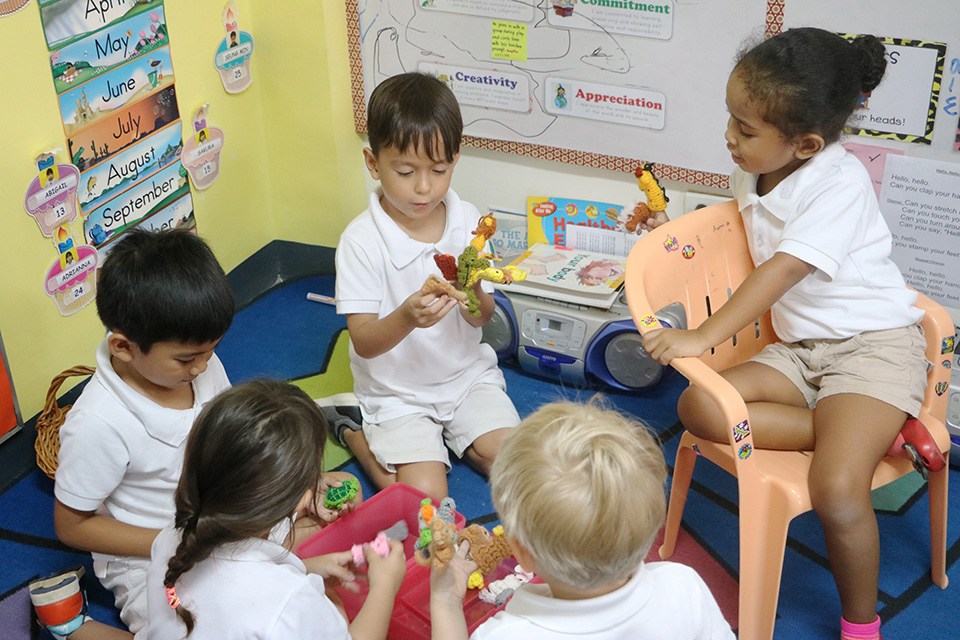Early Years
Preschool program for 3 & 4 year olds
CIS offers early childhood as early as Early Years 2 for 3 year olds and Early Years 3 for 4 year olds adapting the IB PYP for our early childhood education.
“In the PYP, it is acknowledged that experiences during the early years lay the foundations for all future learning. Research indicates that the rapid rate of development that occurs in the physical, social, emotional, intellectual and aesthetic domains is particularly significant. It is our responsibility as educators to recognize and maximize this crucial stage of learning.”
Development usually occurs in recognizable and predictable directions and is unique in each child. For many children, these early years also mark the first transition from home to group experiences outside of the family and to new physical environments.
CIS strives to make this adjustment as successful as possible by encouraging the development of secure and trusting relationships with new adults and peers.

Teachers of students in the early years are encouraged to support students’ interests, build up their self-esteem and confidence, and respond to spontaneous events, as well as support the development of skills in all cognitive areas in relevant ways.
“Children are full of curiosity, and the PYP provides a framework that gives crucial support for them to be active inquirers and lifelong learners.”
Knowledge in the PYP is framed in the form of units of inquiry. In the Early Years, the teachers collaboratively developed 8 units that are being taught over the timeframe of up to 3 years. These units have a global relevance, are engaging and significant for the age group and students of all culture.
“For four to six weeks’ students inquire into concepts such as family, self, expression through music and dramatic play, life cycles, 5 senses and community members.”
It is the philosophy of our program that children learn through play. In order to achieve our learning objectives, teachers setup the classroom environment to encourage the students’ natural curiosity and engage them in inquiry.
- Circle time generally focuses on the big ideas of the units and help students make sense of the world around them.
- Active participation in evolving projects related to their learning reinforces the development of skills, knowledge and attitudes necessary to be successful in life.
- Knowledge related to the traditional disciplines such as mathematics, language learning, science, social studies, art, music, movement and personal and social education are integrated naturally in activities throughout the day.
At CIS, our curriculum is based on the scope and sequence documents of the PYP. Learning is a developmental process and each discipline is clearly defined to meet overall expectations and conceptual understandings are being developed in each phase of learning.


